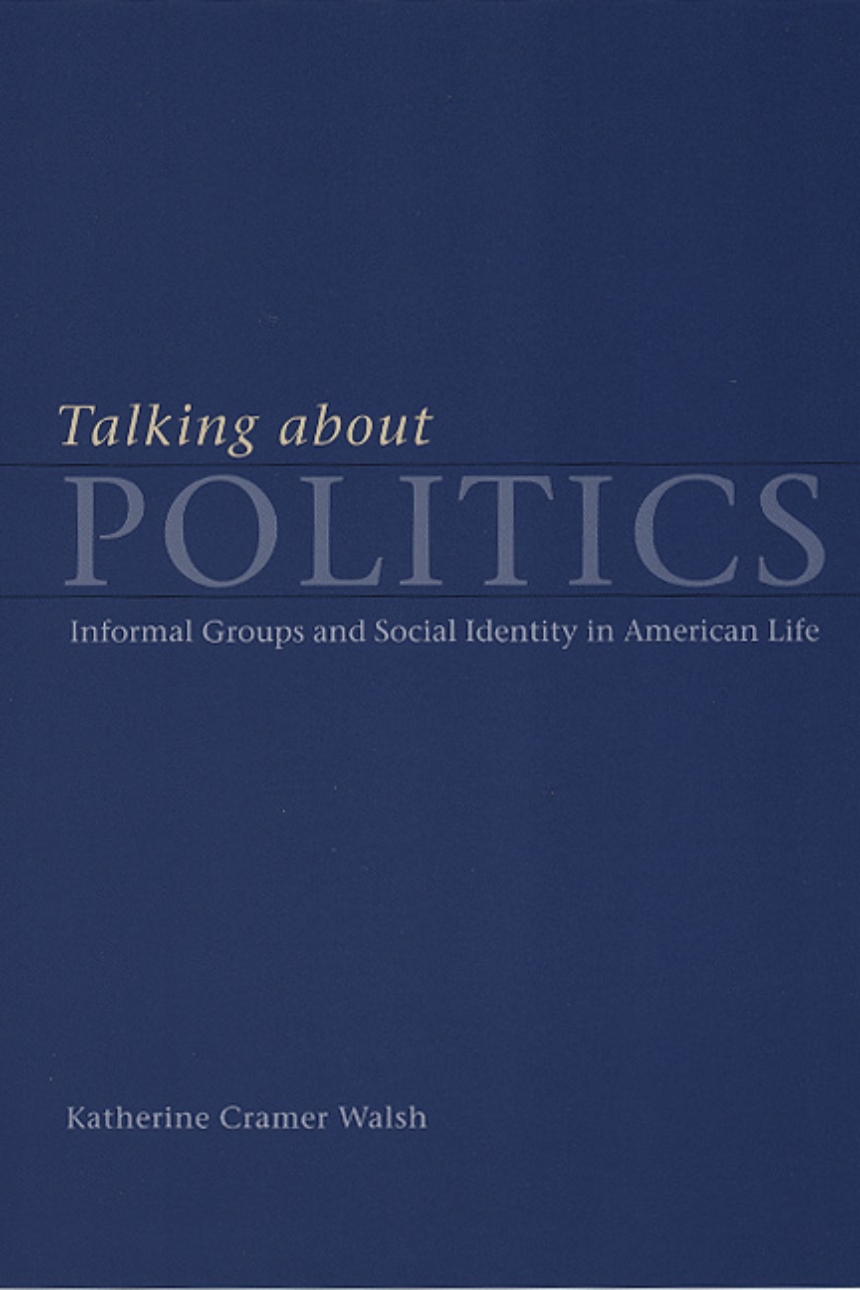Talking about Politics
Informal Groups and Social Identity in American Life
9780226872209
9780226872186
9780226872216
Talking about Politics
Informal Groups and Social Identity in American Life
Whether at parties, around the dinner table, or at the office, people talk about politics all the time. Yet while such conversations are a common part of everyday life, political scientists know very little about how they actually work. In Talking about Politics, Katherine Cramer Walsh provides an innovative, intimate study of how ordinary people use informal group discussions to make sense of politics.
Walsh examines how people rely on social identities—their ideas of who "we" are—to come to terms with current events. In Talking about Politics, she shows how political conversation, friendship, and identity evolve together, creating stronger communities and stronger social ties. Political scientists, sociologists, and anyone interested in how politics really works need to read this book.
Walsh examines how people rely on social identities—their ideas of who "we" are—to come to terms with current events. In Talking about Politics, she shows how political conversation, friendship, and identity evolve together, creating stronger communities and stronger social ties. Political scientists, sociologists, and anyone interested in how politics really works need to read this book.
Read an essay based on the book.
264 pages | 15 line drawings, 14 tables | 6 x 9 | © 2003
Studies in Communication, Media, and Public Opinion
Political Science: American Government and Politics, Political Behavior and Public Opinion
Sociology: Social Change, Social Movements, Political Sociology
Table of Contents
Acknowledgments
List of Tables and Figures
List of Appendixes
1. Introduction: The Public’s Part of Public Discussion
2. The Role of Identity-based Perspectives in Making Sense of Politics
3. The Social Practice of Informal Political Talk
4. Clarifying Social Identity through Group Interaction
5. Talking Politics in a Context of Understanding
6. Public Discussion of the Daily News
7. The Data Are Not Given: Perspectives, Political Trust, and the 2000 Election
8. Social Interaction, Political Divides
Appendixes
Bibliography
Index
List of Tables and Figures
List of Appendixes
1. Introduction: The Public’s Part of Public Discussion
2. The Role of Identity-based Perspectives in Making Sense of Politics
3. The Social Practice of Informal Political Talk
4. Clarifying Social Identity through Group Interaction
5. Talking Politics in a Context of Understanding
6. Public Discussion of the Daily News
7. The Data Are Not Given: Perspectives, Political Trust, and the 2000 Election
8. Social Interaction, Political Divides
Appendixes
Bibliography
Index
